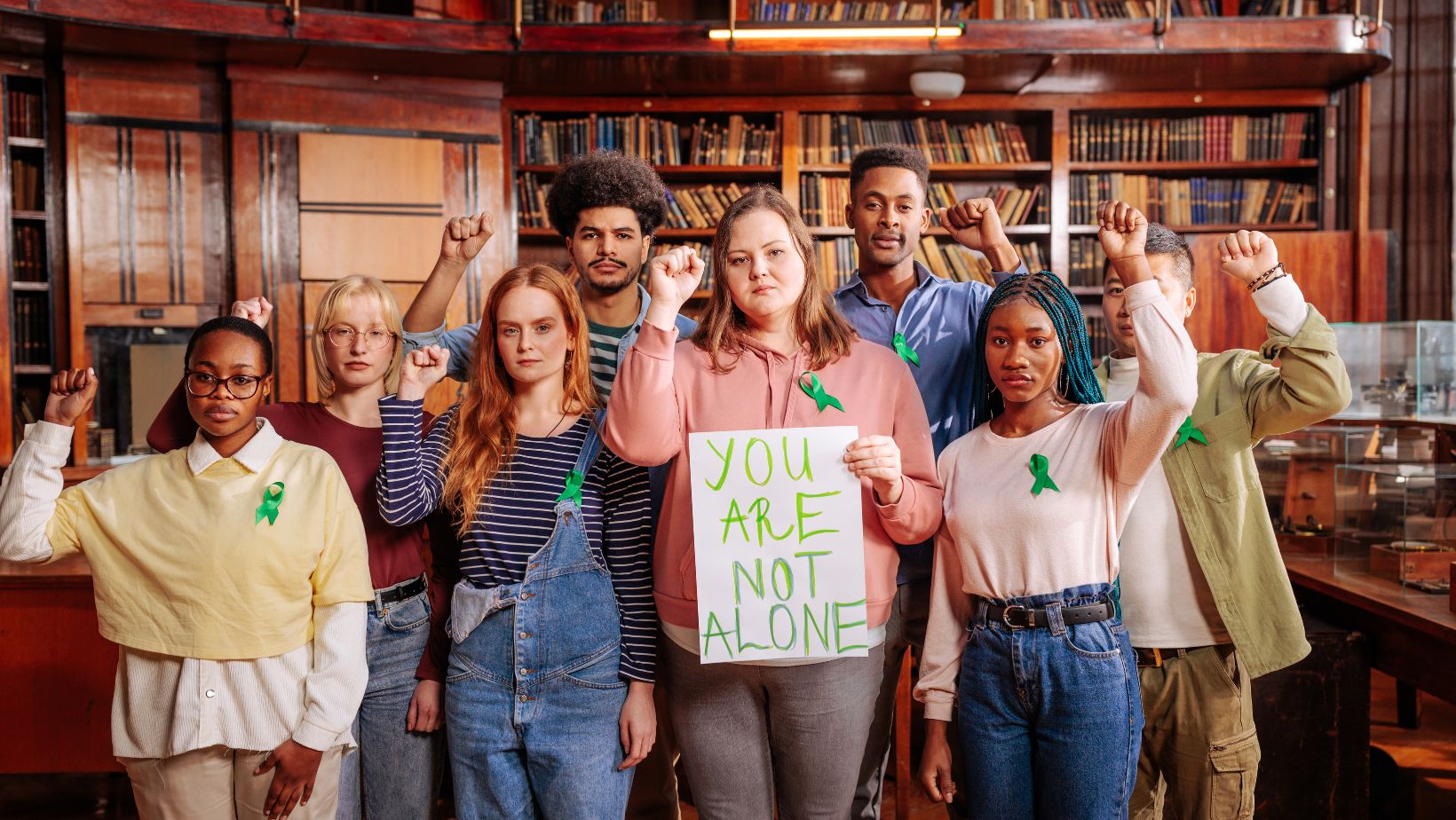
In today’s fast-paced world, maintaining good mental health has become more important than ever. While professional therapy and medication play crucial roles in mental health treatment, mental health support groups have emerged as a powerful complementary tool.
These groups offer a unique blend of peer support, shared experiences, and practical coping strategies that can be incredibly beneficial for those struggling with mental health issues. In this article, we’ll delve into the world of mental health support groups, exploring their benefits, how they work, and why you might consider joining one.
What Are Mental Health Support Groups?
Mental health support groups are gatherings of individuals who share similar mental health challenges. These groups provide a safe, non-judgmental space for people to share their experiences, feelings, and coping strategies. They can be focused on specific conditions like depression, anxiety, or bipolar disorder, or they may be more general, addressing overall mental wellness.
Support groups can take various forms:
- In-person meetings
- Online forums or chat rooms
- Video conferencing sessions
- Telephone support lines
Some are led by mental health professionals, while others are peer-led. Regardless of the format, the core principle remains the same: providing mutual support and understanding among individuals facing similar challenges.
The Power of Shared Experiences
One of the most significant benefits of mental health support groups is the power of shared experiences. When you’re struggling with mental health issues, it’s easy to feel isolated and alone. You might think that no one else could possibly understand what you’re going through. This is where support groups can be transformative.
In a mental health support group, you’ll meet others who have walked a similar path. They understand the daily struggles, the setbacks, and the small victories that come with managing mental health. This shared understanding can be incredibly validating and comforting. It helps to normalize your experiences and reduce feelings of shame or isolation.
Learning Practical Coping Strategies
Mental health support groups aren’t just about sharing feelings – they’re also a valuable source of practical advice and coping strategies. Members often share what has worked for them in managing their symptoms or navigating challenging situations. This peer-to-peer learning can be incredibly effective.
For example, someone in your group might share a breathing technique that helps them manage anxiety attacks. Another member might recommend a helpful app for tracking mood changes. These practical tips, coming from people who have personally found them useful, can be a great complement to the strategies you learn in individual therapy.
A Safe Space for Expression
Many people find it difficult to open up about their mental health struggles with friends or family. There might be fears of judgment, misunderstanding, or burdening loved ones. A mental health support group provides a safe, confidential space where you can express your thoughts and feelings freely.
In these groups, you’re encouraged to be honest about your experiences, both positive and negative. There’s no pressure to put on a brave face or pretend everything is fine. This freedom of expression can be incredibly cathartic and healing.
Boosting Self-Esteem and Confidence
Participating in a mental health support group can significantly boost your self-esteem and confidence. As you share your experiences and coping strategies, you may find that your insights are helpful to others in the group. This realization – that your experiences have value and can help others – can be incredibly empowering.
Moreover, as you progress in your mental health journey, you might find yourself in a position to offer support and encouragement to newer group members. This role can further enhance your sense of self-worth and purpose.
Complementing Professional Treatment
It’s important to note that mental health support groups are not a replacement for professional treatment. Rather, they work best as a complement to individual therapy and/or medication. Many health support services recognize the value of support groups and may even recommend them as part of a comprehensive treatment plan.
Support groups can reinforce the work you do in individual therapy. They provide ongoing support between therapy sessions and can help you practice the skills you’re learning. Some people find that discussing topics from their therapy sessions in a group setting helps them gain new perspectives and insights.
Types of Mental Health Support Groups
There’s a wide variety of mental health support groups available, catering to different needs and preferences. Some common types include:
- Condition-specific groups (e.g., depression, anxiety, bipolar disorder)
- Groups for specific demographics (e.g., women, LGBTQ+, veterans)
- Groups for caregivers of individuals with mental health issues
- Dual diagnosis groups (for those dealing with both mental health and substance abuse issues)
- General mental wellness groups

Online vs. In-Person Support Groups
With the rise of digital technology, online mental health support groups have become increasingly popular. Both online and in-person groups have their advantages:
Online Groups:
- Accessible from anywhere
- Can provide anonymity
- Often available 24/7
- Suitable for those with social anxiety or mobility issues
In-Person Groups:
- Offer face-to-face connection
- Provide structure and routine
- Allow for non-verbal communication
- Can lead to real-world friendships
The choice between online and in-person groups often comes down to personal preference and individual circumstances.
How to Find a Mental Health Support Group
If you’re interested in joining a mental health support group, there are several ways to find one:
- Ask your therapist or healthcare provider for recommendations
- Check with local hospitals or community health centers
- Look for national organizations related to your specific mental health condition
- Search online directories of support groups
- Check social media platforms for online support communities
Remember, it’s okay to try out a few different groups before finding one that feels right for you. The dynamics of each group can vary, so don’t get discouraged if the first one you try isn’t a perfect fit.
Making the Most of a Support Group
To get the most benefit from a mental health support group, consider the following tips:
- Be consistent in your attendance
- Participate actively, but don’t feel pressured to share more than you’re comfortable with
- Listen respectfully to others
- Be honest about your experiences and feelings
- Try to apply the coping strategies you learn in your daily life
- Respect the confidentiality of the group
- Remember that progress takes time – be patient with yourself
Potential Challenges and How to Overcome Them
While mental health support groups offer many benefits, they can also present some challenges:
- Comparing your progress to others: Remember that everyone’s journey is unique. Focus on your own progress rather than comparing yourself to others.
- Dealing with negative group members: If someone in the group is consistently negative or disruptive, speak to the group leader about your concerns.
- Feeling overwhelmed by others’ stories: It’s okay to take a break if you’re feeling overwhelmed. Practice self-care and speak to the group leader if you’re struggling.
- Confidentiality concerns: If you’re worried about confidentiality, consider starting with an online group where you can remain anonymous.
- Time commitment: If attending regular meetings is challenging, look for drop-in groups or online forums that offer more flexibility.
The Role of Support Groups in Mental Health Advocacy
Beyond their immediate benefits to participants, mental health support groups play a crucial role in mental health advocacy. They help to:
- Reduce stigma by normalizing conversations about mental health
- Raise awareness about mental health issues
- Provide a collective voice for those with mental health conditions
- Offer insights to researchers and policymakers about the lived experiences of those with mental health challenges
By participating in a support group, you’re not only helping yourself but also contributing to the broader mental health community.
Conclusion: The Power of Community in Mental Health
Mental health support groups offer a unique and valuable form of help for those dealing with mental health challenges. They provide a sense of community, practical coping strategies, and a safe space for expression. Whether you’re dealing with a specific mental health condition or simply looking to improve your overall mental wellness, a support group can be an excellent addition to your mental health toolkit.
Remember, seeking support is a sign of strength, not weakness. If you’re struggling with your mental health, consider reaching out to a support group. You might be surprised at how transformative it can be to connect with others who truly understand what you’re going through.

In a world where mental health challenges are increasingly common, support groups remind us of the power of human connection. They show us that we’re not alone in our struggles and that, together, we can find strength, hope, and healing. Whether you choose an in-person group or an online community, taking that first step to connect with others could be the beginning of a powerful journey towards better mental health.












